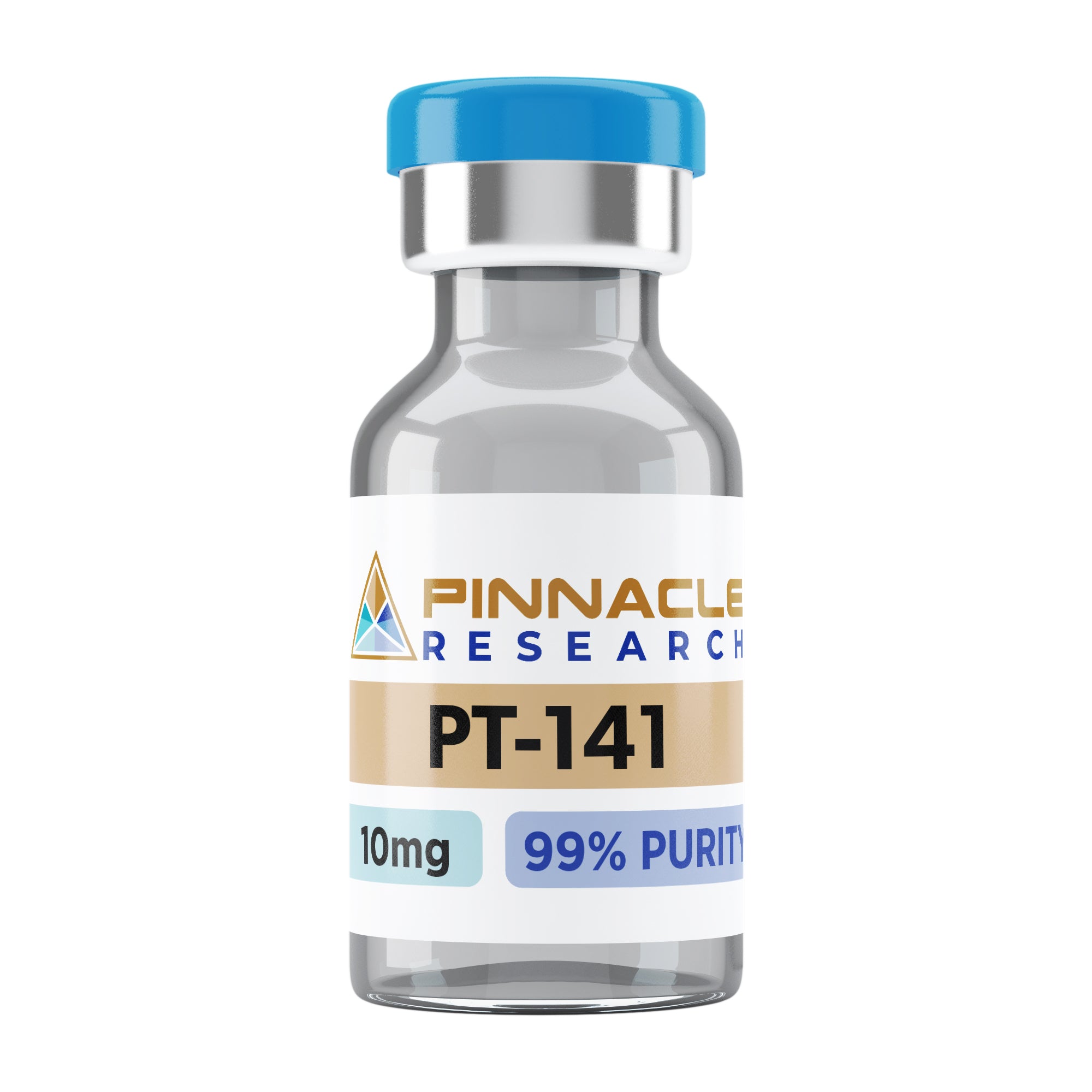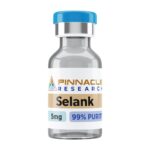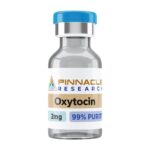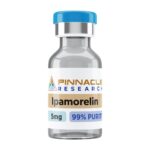About PT-141
The generic clinical name of PT-141 is Bremelanotide, and it’s a modified version of the derivative of the alpha-melanocyte-stimulating hormone. Unlike the other modifications of the derivatives, PT-141 is heavily modified. The compound has undergone several scientific studies and tests to determine its potency in treating acute hemorrhage and hypoactive sexual desire disorder in men and women. It is an agonist of the melanocortin-1 and melanocortin-4 receptors. Apart from promoting sexual desires and stimulating the immune system, read on to discover more about PT-141.
What Is PT-141?
Bremelanotide (PT-141) is sometimes referred to as the female Viagra. The name was derived after the compound was tested in phase II with human clinical trials as a viable treatment for female hypoactive sexual desire disorder (HSDD). Bremelanotide is a melanocortin that binds itself to the melanocortin 4 receptor and melanocortin 1 receptor. In 2009, the PT-141 compound was also investigated and tested as a viable treatment for acute bleeding. Additionally, the compound is a derivative of synthetic Melanotan 2 (MT-2) and melanocortin.
PT-141 Chemical Molecular Structure
- Sequence: Ac-Nle-Asp (1)-His-D-Phe-Arg-Trp-Lys (1)
- Molecular Formula: C50H68N14O10
- Molecular Weight: 1025.182 g/mol
Bremelanotide Effects and Research
Sexual Arousal
The Bremelanotide peptide stimulates the melanocortin 4 receptor, which causes sexual arousal and influences sexual behavior. Sexual arousal occurs in the central nervous system. According to a research study in mice, the agonist binds to the MC-4R, thus increasing copulation and sexual arousal in men and women. Unlike the standard Viagra, PT-141 has a different functionality when treating sexual arousal disorders. Sexual arousal disorders in men and women are caused by the genitals having a low blood supply.
Another study was done on males with ED (erectile dysfunction) who were responsive to the sildenafil treatment. Findings from the study showed that one-third of the test subjects experienced adequate erection when they consumed PT-141, which was administered using a nasal spray. Researchers also observed that the trial had strong dose-dependent responses, proving that Bremelanotide was more effective in some instances. Scientists believe Bremelanotide could provide a deeper insight into correcting erectile dysfunction in men, especially when sildenafil treatment is unsuccessful. Researchers can also investigate the central causal factors of hypoactive sexual desire.
Hemorrhage
The Bremelanotide peptide was modified in a 2019 research study. The study investigates the use of the peptide as an alternative treatment for hemorrhagic shock. Since PT-141 binds with the MC-1R and MC-4R receptors, it reduces ischemia. Additionally, the peptide triggers the protection against inadequate blood supply caused by hypovolemic or hemorrhagic shock. PT0141 was administered intravenously, and the researchers reported no substantial side effects. The modified version of PT-141 used in the study is PL-6983. The compound is in the last stage of the IIb trials.
Infection
A rat model with a specific fungal infection was used in a study investigating the possible treatment options using PT-141. The study revealed that the melanocortin 1 receptor possessed significant anti-inflammatory and anti-fungal properties. The current anti-fungal treatments experience limited functionality when ingested and sometimes trigger treatment-limiting and severe side effects in patients. PT-141 can be a viable treatment option since it triggers melanocortin 1 receptor functionality. The possibility of having a more effective treatment option for fungal infections will substantially decrease morbidity and mortality, especially in patients with a compromised immune system.
Cancer
The melanocortin 1 receptor is the vital stimulus for repairing DNA pathways, which is one of the critical areas of interest in cancer prevention and treatment. According to scientific evidence from a research study, individuals with melanocortin 1 receptor variants are at a higher risk of suffering from squamous cell carcinoma and basal cell. The altered PT-141 peptide can correct the effects caused by the melanocortin 1 receptor variants and ultimately prevent these cancers. Scientists can also use the information to develop effective preventive measures for squamous cell carcinoma and basal cell cancers.
Weight Loss
The melanocortin 4 receptor has been substantially associated with appetite regulation. Peptides, agonists of MC-4R, enhance satiety while reducing total calorie intake. When ingested, PT-141 interacts with leptin to signal the pathways which regulate food intake. Scientists are still investigating the complex process. Bremelanotide peptide is a derivative of the α-Melanocyte-stimulating hormone (α-MSH). The α-MSH peptide hormone interacts with ghrelin-leptin’s system to negatively affect food intake.
Scientific evidence confirms that Bremelanotide increases the body’s energy expenditure by uncoupling specific energy pathways, thus causing increased basal metabolism. During a research study on mice, activation of the melanocortin 4 receptor increased thermogenesis. The observation was present even in mice genetically modified to have protein deficiency. Increased thermogenesis in the mice caused increased calorie burn. Even though calorie burn was experienced at all times, even during rest, a large percentage of calorie burn happened in the fatty tissues.
The Bremelanotide synthetic peptide has received intense and widespread attention as a reliable treatment option for sexual dysfunction in men and women. Nevertheless, there is great potential in how PT-141coud be applied in treating bleeding and sexual dysfunction. Scientific evidence shows that the melanocortin 4 receptor is missing or defective in cases of obesity. Defection or absence of melanocortin 4 receptor accounts for 6% of early onset of obese conditions. PT-141 can be used as a viable treatment for this kind of obesity, and researching more into the causal factors of the condition.
On the other hand, the melanocortin 1 receptor plays an essential role in inflammation, pain, the spread of infection and kidney pathology. Scientists continue to explore and investigate more health benefits derived from the Bremelanotide synthetic peptide. When the compound was administered to mice, it exhibited excellent subcutaneous bioavailability, minimal side effects, and low oral. However, the dosage used in mice needs to scale up to the potential dosage used in humans. So far, there haven’t been side effects associated with the compound, even in the trial stages.
Bremelanotide is a modified version of the derivative of the alpha-melanocyte-stimulating hormone, which has proved to be a reliable treatment for sexual dysfunction. There is hope that the compound will have more benefits in improving the overall health of humans.



